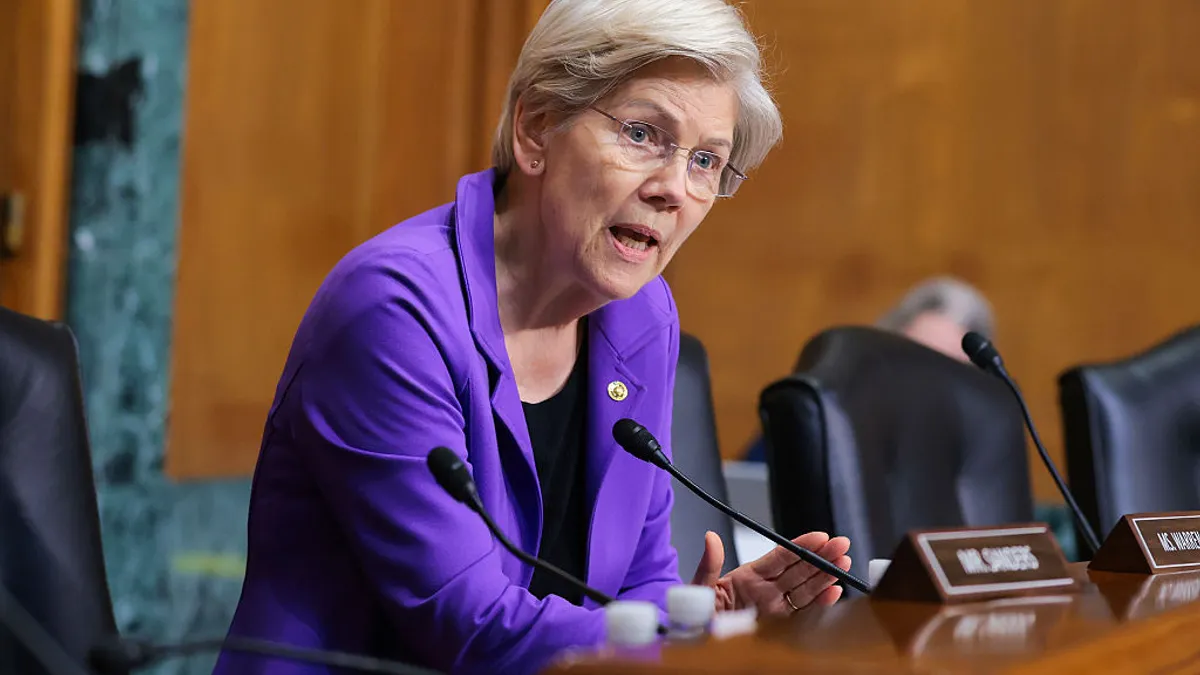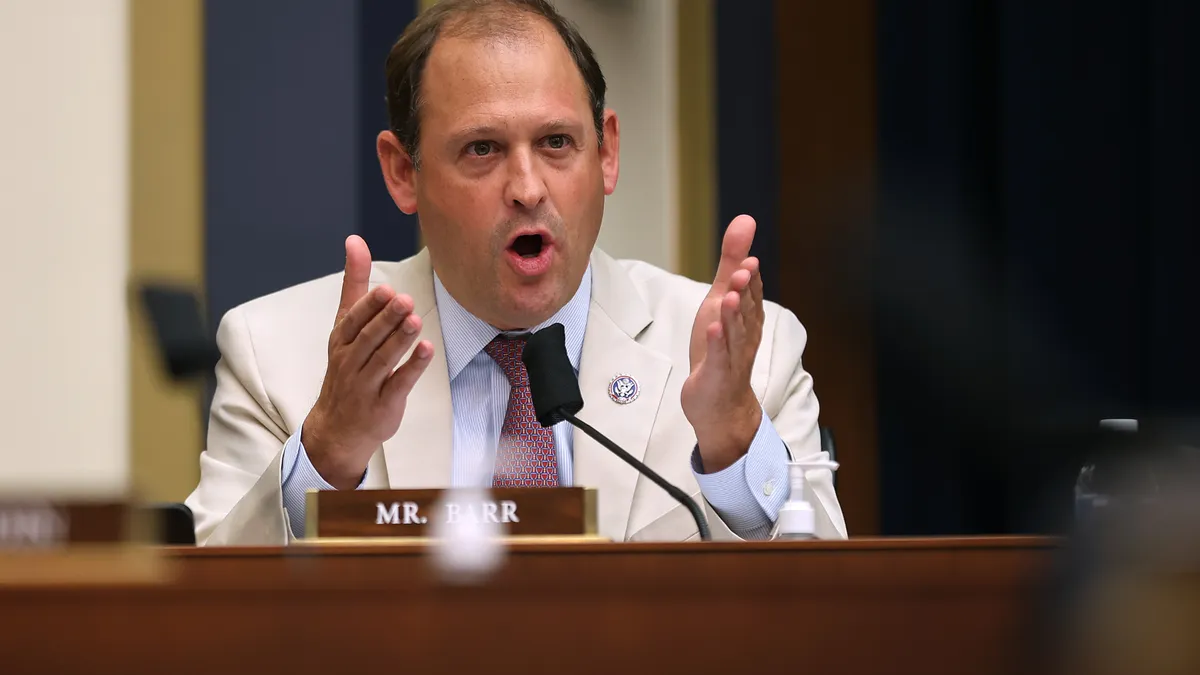The House voted Wednesday, 217-211, to overturn through the Congressional Review Act a Consumer Financial Protection Bureau final rule that would cap overdraft fees at $5.
The move comes less than two weeks after the Senate passed a similar resolution, meaning the measure now goes to President Donald Trump’s desk. If he signs – and he has indicated he would – it will nullify a limit on the amount banks and credit unions with more than $10 billion in assets can charge consumers who overdraw their accounts. The CFPB rule had been set to take effect in October.
Wednesday’s tally fell largely along party lines, with just one Republican – Rep. Ryan Mackenzie of Pennsylvania – voting against the CRA resolution.
At issue is a debate over the purpose of overdraft fees. A number of Republicans have argued that capping the fee would also curb overdraft protection, giving lower-income consumers fewer options when money is tight.
In a statement Wednesday, Rep. John Rose, R-TN, called the CFPB rule “drastic, punitive, and harmful to banks and credit unions – but it also stands to harm the very people it purports to protect.”
Rep. French Hill, R-AR, added to the sentiment.
“This government price control on overdraft fees would have limited consumer choice and been detrimental to the families who need the certainty that their purchases will not be denied at the cash register,” Hill, the chair of the House Financial Services Committee, said Wednesday.
Many Democrats, on the other hand, have couched the overdraft fee as a tool banks use to drive profits.
“A vote for this bill is a vote for big banks,” Rep. Maxine Waters, D-CA, the financial services committee’s ranking member, said Wednesday on the House floor, according to American Banker. “A vote for this bill is a vote for big fees, and a vote for this bill is a vote against your constituents.”
The Biden administration targeted overdraft fees as “junk,” and Democratic lawmakers regularly blasted bank CEOs during hearings over the $35 charge consumers typically received for overdrawing. Since 2021, many banks – most notably, Bank of America and Wells Fargo – have greatly reduced the amount they charge for overdraft, while lenders such as Capital One and Citi have eliminated them altogether.
Ahead of Wednesday’s vote, 23 Democratic attorneys general and the head of Hawaii’s consumer-protection regulator wrote lawmakers, urging them not to support the CRA resolution.
The AGs aimed to counter a Republican argument that “limiting overdraft fees would somehow deprive consumers of options and choice.”
“In the vast majority of instances, consumers do not incur these fees by choice: according to the CFPB’s [2023] survey, only 22% of households expected their most recent overdraft,” the AGs wrote.
Banking trade groups largely supported the House move.
“Both Chambers of Congress voting to overturn this onerous rule marks a significant victory for millions of Americans — especially the one in five without access to credit — who rely on overdraft services to pay for essentials and cover emergency expenses,” Consumer Bankers Association CEO Lindsey Johnson said Wednesday in a statement.
The trade groups’ stance should hardly be a surprise. The CBA, along with the American Bankers Association, Mississippi Bankers Association and America’s Credit Unions, sued the CFPB to block the rule’s implementation less than a day after it was issued.
“Consumers have indicated time and time again that they value and appreciate this highly regulated service and don’t want banks to discontinue offering it because of a rule that imposes unlawful government price caps,” ABA CEO Rob Nichols said in a statement Wednesday. “Congress has acted decisively to right that wrong and ensure America’s banks can continue offering this important, optional service consumers rely upon to meet their short-term financial needs.”
At least one consumer advocate, however, sided against the House action.
“Congress just made America more expensive for anyone struggling to make ends meet. Partisanship has come before common sense,” Adam Rust, director of financial services for the Consumer Federation of America, said in a statement Wednesday. “Unfortunately, a CRA is as blunt as it is long-lasting, so today’s narrow vote secures enduring profits for big banks’ overdraft franchises by making permanent their unfettered privilege to charge burdensome junk overdraft fees.”
The Congressional Review Act allows lawmakers 60 days to overturn federal regulations. But for rules issued less than 60 days before the end of a congressional session, that window resets when a new session starts. The CFPB issued its final rule on overdraft in December.
Under the rule, banks and credit unions with more than $10 billion in assets would be given a choice regarding their overdraft fee policies. They can choose a blanket $5 charge per overdraft; set a fee that’s equal to their costs and losses from offering overdraft protection; or continue charging overdraft fees at current rates as long as the lenders give customers notifications similar to those associated with credit cards, the CFPB said in December.























